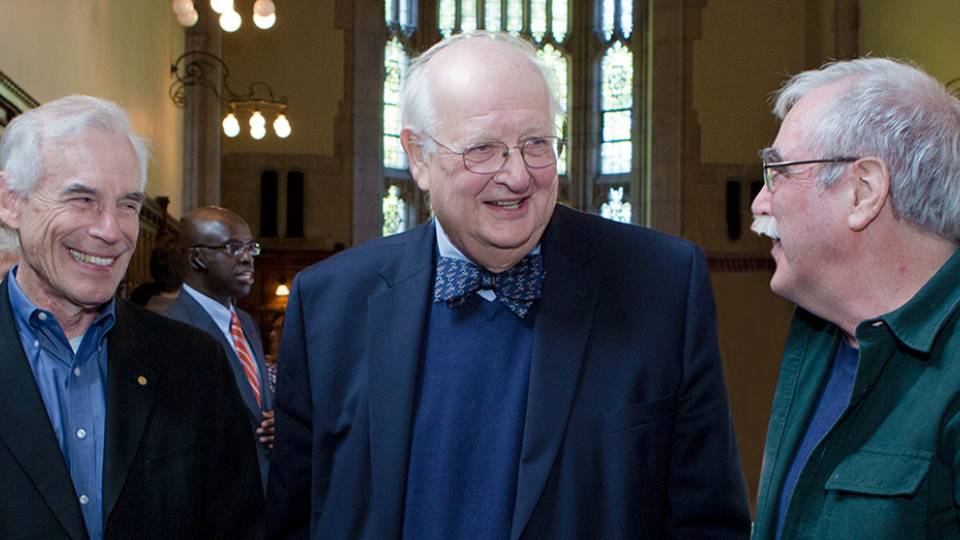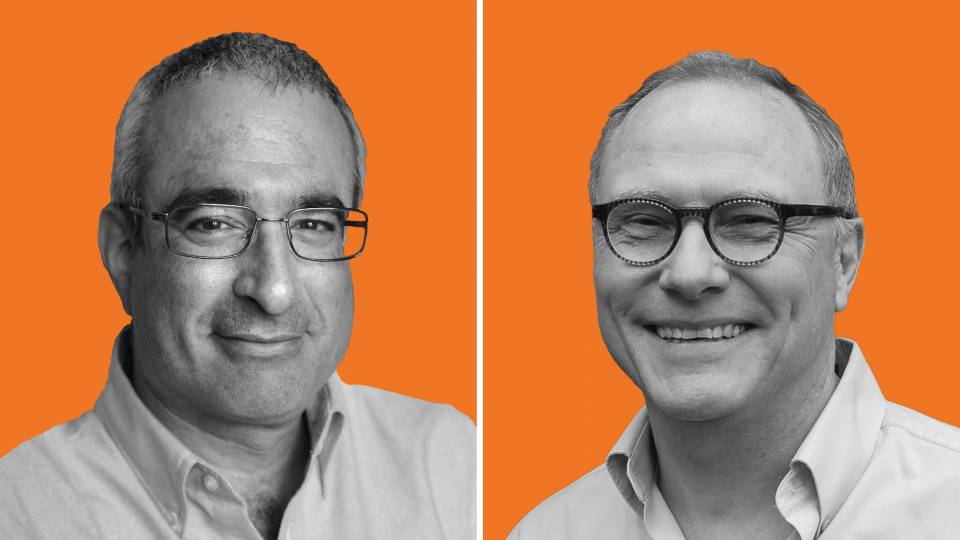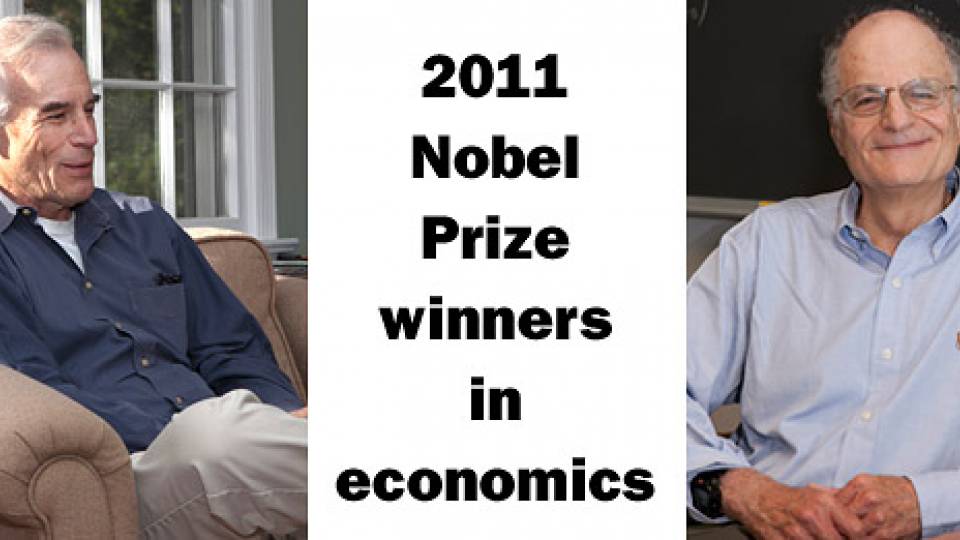Quotes from the colleagues and students of 2015 Nobel Prize in economics winner Angus Deaton:
Orley Ashenfelter, the Joseph Douglas Green 1895 Professor of Economics
"What a delight to see the Nobel Prize awarded to Angus Deaton! His work is the epitome of careful measurement in economics, getting both the conceptual apparatus and the implementation right. It is perhaps the first time since the Nobel was awarded to Richard Stone (who was a mentor of Deaton's) or Simon Kuznets that the Committee has focused on this fundamental aspect of economics.
"Deaton is a good friend, and fine cook, who I've known since I visited him at the University of Bristol several decades ago — shortly before he came to Princeton. He is a legendary lecturer and teacher and a prolific scholar in the microeconomic theory of the household, development economics and health economics."
Christopher Sims, the John J. F. Sherrerd '52 University Professor of Economics and 2011 Nobel laureate in economics
"As a representative of the economics department, I think we all feel tremendous pride and happiness that this well-deserved award has finally come to Angus for whom we all have the highest appreciation both as a colleague and a person."
Christina Paxson, President of Brown University
"The opportunity to work with Angus Deaton brought me to Princeton; I went to the University because of him. Anyone who has worked with Angus knows the truly extraordinary, exceptional and inspiring joy he takes in learning and research. He always thinks the current project he's working on is his best work, and he is continually energized by the process of discovery.
The breadth of Angus' work in the areas of consumption, inequality and poverty is just astonishing. While the Nobel Prize typically focuses on a particular accomplishment, given Angus' contributions in so many areas in consumption, inequality and poverty, I can't think of anyone more deserving of this recognition for a full body of scholarship and research in these areas."
Franco Peracchi, professor of econometrics at the University of Rome Tor Vergata and a professor of the practice in the department of economics at Georgetown University, who earned his Ph.D. at Princeton in 1987
"I am very excited that Professor Deaton won the 2015 Nobel Prize in Economics. I was fortunate to have him as a thesis adviseor at Princeton, and to have him now as a friend. His research deals with fundamental concepts: consumption, health and well-being. Consumption is one of man's main activities, it requires both judgment and resources, has a forward-looking dimension, and produces individual well-being as its output. Health is one of the fundamental aspects of well-being. At the same time, health (along with income) is a pre-condition for consumption. Poor health and low income limit our consumption activities and the amount of well-being that we derive from them. Economic theory helps us understand some of these relationships. But simple theorizing is of limited use if it does not provide observable predictions. This raises the question of how to combine the data with appropriate econometric and statistical methods in order to test the prediction of a theory. In this approach, economic theory, econometrics and statistical methods all play a role. There are not very many people that can master all three. Angus Deaton is definitely one of them."
David Atkin, assistant professor, Massachusetts Institute of Technology, who earned his Ph.D. at Princeton in 2009
"There is no economist more deserving of the prize than Angus Deaton. Angus has an incredibly deep understanding of how careful data analysis can and cannot be used to enrich our understanding of the world. Beyond his many notable papers, it is this understanding — passed on to a multitude of Ph.D. students and readers — that has had the most profound impact on the profession."
Diane Coffey, visiting fellow at the Woodrow Wilson School of Public and International Affairs and a visiting economist at the Indian Statistical Institute in Delhi and co-executive director of R.I.C.E., a research institute for compassionate economics, who earned her Ph.D. at Princeton in 2015
"I can say from experience that Princeton students are incredibly fortunate to have Angus Deaton as a professor and mentor. His example and wisdom challenge us to tackle important questions by thinking carefully about the data, with all of the puzzles and paradoxes they present."
Annamaria Lusardi, the Denit Trust Chair of Economics and Accountancy at George Washington University, who earned her Ph.D. at Princeton in 1992 "Angus Deaton has made contributions in multiple fields in economics, from explaining consumption and saving behavior to addressing fundamental questions related to poverty and its measurement to health and econometrics. Graduate students who had him not only as professor but also as adviser (as I did) learned a tremendous amount from his work and guidance. In my case, I have pursued research on saving behavior because of his lectures outlining the many missing pieces of existing theories. His ability to cut through the complexity of theories to get to the main points and explain them in simple ways was legendary. I remember vividly one of the comments he made often in class: 'If you cannot explain a model in simple words, you have not understood it.' Every time I prepare a new course or I give a presentation, I am reminded of that lesson."


